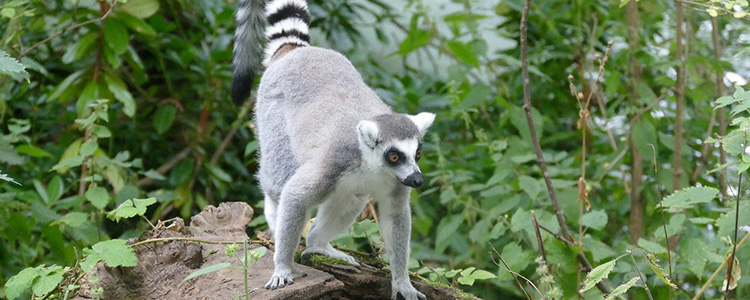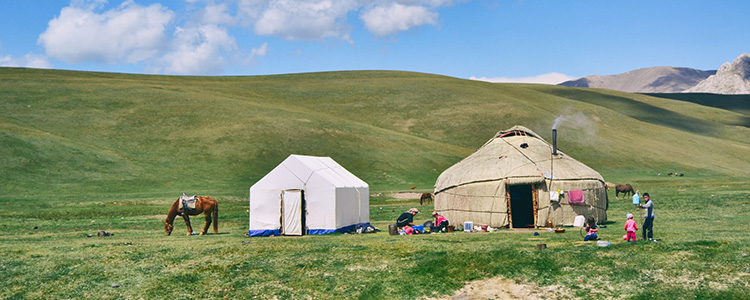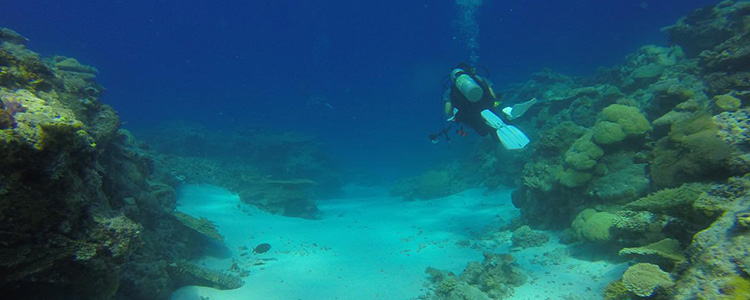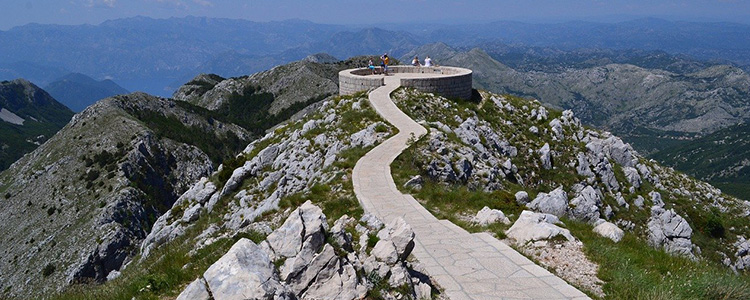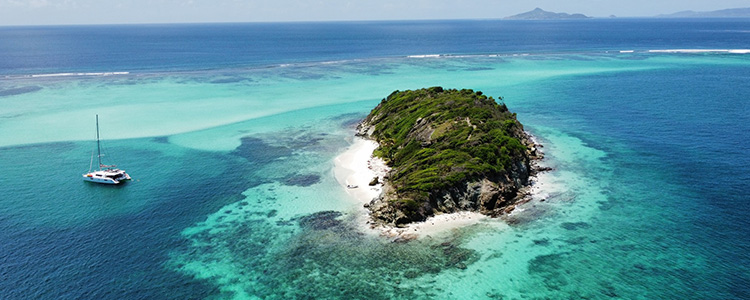Indonesia Country Bundle: suggestions, stories and tips
Content about Indonesia on WorldSupporter
 Indonesia: Updates & Travel
Indonesia: Updates & Travel
Travel in Indonesia
- Traveling in Indonesia is an adventure and has it all. The diversity is enormous: Indonesia has the fourth largest population in the world, about 265 million people, and consists of thousands of larger and smaller islands. The people are very friendly and helpful. Travel along beautiful rice fields, climb volcanoes, see orangutans in the jungle on Kalimantan or Sumatra and sunbathe or surf on the white or black beaches with the perfect wave on Bali. Go on a cultural tour and get to know the rich history of the country or experience the phenomenal sunrise at the Buddhist temple Borobudur on Java. The sea that surrounds the countless islands of Indonesia offers opportunities for diving and surfing at the best spots in the world.
- Do you like volcanoes? Then Indonesia is the right place to go for you. The country has many volcanoes and volcanic areas. Visit and climb Bromo or Merapi on Java or walk to the crater lake at Kawa Ijen, also on Java. Indonesia is a surfers' paradise: many world-class super spots can be found along the coastlines of Sumatra, Java, Bali, Lombok, Flores, Sumbawa, Sumba and further east.
- Eat at local streetfood places: here you will find the tastiest dishes for a low price: satay, gado gado, tempeh, nasi goreng, sate gambing (picknickstyle) and rendang (spiced and stewed beef or jackfruit).
- Go in search of orangutans in the jungle of Sumatra or Kalimantan.
- Indonesia has many temples and temple complexes, where you can sniff Buddhist and Hindu (in Bali) culture.
- Visit Samosir, an island in the middle of crater lake Danau Toba on Sumatra. The traditional Batak live here, with their beautiful houses (where you can sleep).
- Bukittingi: a tourist city, centrally located on Sumatra, where there is a lot to see. It also has a cool climate due to its high location. Bukit Lawang: the place on Sumatra from where you can go on a jungle tour to see orangutans.
- Visit the Prambanan and Borubodur, the largest temple complexes on Java.
- Purah Besakih, a beautiful high-altitude mega temple complex on Bali.
- Istiqlal Mosque, the largest mosque in Southeast Asia in the center of Jakarta.
- Gili Islands (east of Bali and northwest of Lombok). The main reasons to go there are: sun, sea, beach and parties. Gili Trawangan in particular is a great place to stay if you like partying, diving and snorkeling. If you are looking for peace and quiet and are trying to avoid tourists, you should go to Gili Meno or Gili Air. From the harbor town of Bangsal you can get there in 20 to 60 minutes. In addition to the 'outrigger boats' to the Gili's, you will also find many scammers and annoying taxi drivers and captains in Bangsal. To avoid problems, many people choose the long crossing from Sengiggi, Lombok.
- Be aware that use and/or possession of (soft) drugs is prohibited and is also severely punished.
- Beware of arak, an alcoholic drink that is locally distilled and available locally. There are known cases of people dying after consuming this drink. Other locally distilled drinks can also be dangerous.
- Be careful with food and drinks: not everything is equally fresh. Use your common sense. No ice cubes in drinks and preferably no raw vegetables or lettuce if you have any doubts about the way they are prepared.
Updates Indonesia
- Check all the recent roadwork construction in Bali before you start planning your trip.
- More about Indonesia, updates and contributions, see the link below.
 How does the healthcare system work in Indonesia, and which travel insurance, health insurance or expat insurance do you need?
How does the healthcare system work in Indonesia, and which travel insurance, health insurance or expat insurance do you need?
- How does the health care system work in Indonesia?
- How does the public healthcare system work in Indonesia?
- How does the private healthcare system work in Indonesia?
- How is the general practitioner arranged in Indonesia?
- How is the dentist arranged in Indonesia?
- How safe or unsafe is a trip or stay in Indonesia?
- Which work and travel insurance policies are suitable for short and long stays in Indonesia?
- What emigration and expat insurance can you take out for Indonesia if you are going to live there for a while?
How does the health care system work in Indonesia?
- Indonesia, like many countries, has a two-part health care system with public and private options.
- As an expat or emigrant, you can use both systems, fee-based.
- Indonesia's healthcare system is developing solidly, with more and more hospitals, clinics and medical facilities being added.
- The quality of care still varies widely, though, with modern hospitals in large cities such as Jakarta, Bandung and on Bali, and more limited facilities in rural areas.
- Access to medicine may be different from what you are used to. Some medicines that you get in your home country only by prescription can be obtained here and vice versa.
- In an emergency, you can call 118, but the ambulances through this public healthcare system are not of the quality you would like, and in remote areas are even completely absent. If you live in Indonesia, it is helpful to have the contact information of the nearest private clinic so they can send an ambulance.
How does the public healthcare system work in Indonesia?
- Indonesia has had a national health insurance program called Badan Penyelenggara Jaminan Sosial (BPJS) since 1968. This system is designed to provide health care for all and is supported by a national insurance program called Jaminan Kesehatan Nasional (JKN).
- As an expat or emigrant, you can usually take advantage of the public healthcare system, provided you can prove that you have lived in the country for at least a number of months (often at least 6).
- Although the quality of care is slowly increasing, Indonesia is known for the low quality of public health care. For example, there are too few well-trained doctors and infant mortality is also still high. Many good doctors from the public system exchange their jobs for jobs in private healthcare in, for example, Singapore, Bangkok, Kuala Lumpur.
- For locals, public care is cheap. But at the same time, care is often overburdened and of lower quality than in the private sector. It is mainly suitable for basic needs.
- Also, people in public care usually do not speak English.
How does the private healthcare system work in Indonesia?
- Expats and emigrants generally choose private care because of more modern facilities, better hygiene and English-speaking doctors. International hospitals such as Siloam and BIMC (Bali International Medical Center) are popular.
- Costs are higher than public care, but relatively affordable compared to Western standards.
- Yet private care also has limitations.
- For advanced treatments, people often rely more on hospitals in Singapore, Thailand or Malaysia. It is nice and advisable to have coverage in your (international) health insurance for medical evacuation and repatriation, among other things.
How is the general practitioner arranged in Indonesia?
- Indonesia does not have an extensive general practitioner system. Patients usually visit a specialist or clinic directly.
- Private clinics (such as SOS International) are available in major cities and expat areas, providing basic care and referrals.
How is the dentist arranged in Indonesia?
- Indonesia has a large number of private dental clinics, especially in cities such as Jakarta, Surabaya and in Bali.
- Standards are high in modern clinics, and English-speaking dentists are available.
- The cost of dental care is significantly lower than in Europe or North America, making Indonesia a destination for dental tourism.
- Public dental care is also available through BPJS, but the quality is limited.
How is the pregnancy care arranged in Indonesia?
- If you are about to have a baby in Indonesia, it is important to know that the facilities of public health institutions are generally not of sufficient quality and infant mortality is very high compared to other countries in Southeast Asia.
- In public institutions there is a lot of prenatal care, but almost no postnatal care.
- Expats and emigrants usually use private hospitals or international clinics for prenatal care and postnatal care. Private hospitals offer, at a higher cost, modern facilities for deliveries.
- In addition, many foreign families choose the services of a private midwife, as this help usually does not come from clinics.
- In Indonesia, cesarean section is preferred to natural birth because it is seen as less risky. So be sure to discuss well with your doctor what you want.
- The quality of childbirth monitoring often leaves much to be desired. Culturally, people are reluctant to use physical touch.
- Breastfeeding is strongly encouraged and supported by campaigns, but the choice of bottle feeding is also respected.
- Indonesia still has challenges with maternal and infant mortality in rural areas, although the situation in urban hospitals is much better.
- Indonesia began the village midwife program (bidan di desa) in 1989 in cooperation with international organizations: women gave birth at home with the help of minimally trained traditional midwives (dukun bayi). The number of local midwives increased dramatically and is now very important for local, remote communities.
How safe or unsafe is a trip or stay in Indonesia?
What should you pay attention to in terms of safety in Indonesia?
- Living and living in Indonesia is pretty safe, but again, not without risks: think earthquakes, floods, petty crime and in very rare cases terrorism.
- Indonesia is a large country and safety varies greatly by area. In Papua and West Papua, for example, it is more dangerous for visitors than other parts of the country because of political instability. In addition, terrorist attacks occur and areas where tourists frequent are often targeted.
- There is a lot of petty crime. For example, motorcycle robberies are common. So pay close attention to personal belongings, make sure your bag hangs securely around your shoulders and avoid walking down the street with your phone in your hand.
- Credit card and ATM fraud are also common. So be sure to keep a close eye on your bank accounts and use cash to pay as much as possible.
- Political protests are usually peaceful, but avoid large crowds.
- Respect the local culture, especially in conservative areas. Avoid public drunkenness and be careful when expressing your political opinions.
- The country is beautiful but at the same time prone to earthquakes, volcanic eruptions and floods. So it is useful to be informed about disaster plans in your area.
What should you look out for in terms of diseases in Indonesia?
- There are quite a few tropical diseases, many of which are transmitted by mosquitoes. Protect yourself well, especially in rural areas and during the rainy season.
- Tap water is not safe to drink. It is also recommended not to cook with it.
- There is a lot of air pollution in major cities. This can lead to worsening existing respiratory problems.
- Indonesia is generally very hot and tropical. Many new residents suffer from sunburn, sunstroke and dehydration.
- Pay attention to food hygiene, Bali Belly is a well-known phenomenon.
What should you pay attention to when it comes to traffic in Indonesia?
- Roads in Indonesia range from reasonable in cities to poorly maintained in rural areas. Traffic jams are a major problem in large cities such as Jakarta.
- Scooters are the most popular means of transportation, but traffic is chaotic and dangerous for inexperienced drivers.
- There are also many accidents on the road. Hiring a local driver is the safest option for getting around.
- Urban areas have improved transportation options such as MRT and bus networks. Cab apps are also increasingly available and popular.
- Traffic rules are often ignored, and traffic accidents are common. Driving after sunset is not recommended, especially in rural areas.
Which work and travel insurance policies are suitable for short and long stays in Indonesia?
- Is the trip to Indonesia and your return sufficiently covered? Are you sufficiently covered before, during and after your activities? Which insurance best suits your trip and your activity? Read more about insurances for abroad on JoHoinsurances.org.
What emigration and expat insurance can you take out for Indonesia if you are going to live there for a while?
- It is mandatory to be properly insured if you want a long-term visa for Indonesia. Read more about insurances for abroad on Expatinsurances.org.
 Packing list for Indonesia, travel insurance for Indonesia, and taking your belongings
Packing list for Indonesia, travel insurance for Indonesia, and taking your belongings
- What to bring to Indonesia: highlighted
- What knowledge is useful when you go to Indonesia?
- Are there mosquitoes in Indonesia?
- Are there sand flies in Indonesia?
- Can you buy DEET or other mosquito repellents in Indonesia?
- Where can you get food and drinks in Indonesia?
- Can you buy a beer or wine in Indonesia, or take it with you to Indonesia?
- Can you buy a joint or weed in Indonesia, or bring it to Indonesia?
Packing list for Indonesia, travel insurance for Indonesia, and taking your belongings
To take or not to take to Indonesia, leave at home or arrange locally?
Sufficiently insured or not for your activities in Indonesia?
Sufficiently insured or not for your trip to Indonesia?
What to bring to Indonesia: highlighted
Highlighted items:
- Documents: passport that is valid for long enough (>6 months). An online and/or offline copy of your passport is always useful.
- Money: cash is certainly useful for the first few days, a debit card for afterwards.
- Care: sunscreen with a high factor, that is not cheap there.
- Outdoor and conveniences: in any case sunglasses and good, coral-friendly sunscreen! If you go during the rainy season, do not forget waterproof clothing and a waterproof cover for your backpack or bag.
- Clothing: clothing for both heat and humidity (see also tropical clothing and clothing for warm weather) that also covers legs and shoulders in case you want to visit temples or mosques.
- Shoes: good shoes for walking through the city or in nature. Flip-flops are also useful for showering or a day at the beach!
- Medicines and travel kit: a set of mosquito repellents (preferably with DEET, see also DEET mosquito repellent) and a medical kit (self-made or not) with anti-diarrhea.
- Lying down and sleeping: mosquito net, if it is not already present in your accommodation.
- Safety: a money belt or fanny pack is definitely recommended here.
- Technology and equipment: do not forget to bring a world plug, a Dutch plug does not fit into the socket in Indonesia (see also world plug or travel plug)
- Woman: scarf or light shawl – handy if you want to visit a mosque.
What else can you bring:
- A snorkel set, sometimes you can also rent them on site
- Water shoes given the coral and stones in the water at the various locations
- Hat or cap against the sun and heat
- A shawl that you can wear as a sarong, although you can of course also buy them there. This is especially useful at the temples in Bali.
- Reusable bottle with water filter - that saves a lot of plastic!
What knowledge is useful when you go to Indonesia?
- Knowledge of local customs and culture. This also differs greatly between Bali, very remote islands and the rest of Indonesia.
- A few words of Bahasa Indonesia can sometimes go a long way.
- Information about safety, health risks and how to protect yourself against theft.
Are there mosquitoes in Indonesia?
- Indonesia is full of mosquitoes that pose a considerable health risk.
- You are at risk all year round, but this increases even more during the rainy season.
- They are found throughout Indonesia, you are not safe anywhere except perhaps on a high mountain.
Are there sand flies in Indonesia?
- Sand flies are not a very well-known problem in Indonesia, but they do occur.
- If you protect yourself well against mosquitoes, you are generally also protected against sand flies.
Can you buy DEET or other mosquito repellents in Indonesia?
- Products containing DEET are available at supermarkets, mini markets and pharmacies, especially in the cities. The amounts of DEET are often lower than in Europe.
- Soffell is the most popular product in Indonesia.
- Picaridin is harder to find, so it is better to bring your own.
Where can you get food and drinks in Indonesia?
- There are good and reasonably large supermarkets in the cities. Especially in Bali you can get a lot of foreign products.
- Try the local warungs, these are restaurants in people's homes where you can get real, healthy food.
- There are also many restaurants and fast food chains these days, especially in Bali and in the big cities.
- Street food can be found spontaneously and at local markets. Pay attention to what you eat, so that you don't have to break your supply of anti-diarrheals!
- Finding vegan food is very difficult outside of Bali.
Can you buy a beer or wine in Indonesia, or take it with you to Indonesia?
- If you are 21 years or older, beer and wine are easily available in Bali (although it is a lot more expensive) and in the big cities and tourist spots.
- But... in other parts of Indonesia, alcohol consumption can be heavily regulated. In the province of Aceh, alcohol is even completely prohibited. If you do drink here, you can expect, literally, severe lashes as a punishment.
- You are allowed to bring 1 liter of alcohol to Indonesia, so you can at least toast your arrival.
Can you buy a joint or weed in Indonesia, or bring it to Indonesia?
- A clear no. Don't grow it, don't smoke it, don't bring it.
 What are typical Asian habits, food customs and Asian philosophies?
What are typical Asian habits, food customs and Asian philosophies?
Why this blog about habits and philosophies in Asia
I love Asia. I feel at home in Asia. I am half chinese and half dutch. I feel more at ease in filipino culture than chinese culture. I have a good friend from Japan. Throughout the years, I have tried to be open to everything Asia has to offer. To embrace Asia in my being, in my core and to understand and learn more of this continent in the world. Some of the things that really caught me... Any Asian habits that particulary interest you?
What are the habits in China?
- Don't scoop food in your bowl for yourself, but wait for your host or hostess to do so.
- It is impolite to eat everything in your bowl; leave a small amount as a sign of respect.
- Slurping while eating is not rude in China, but rather a sign that you like the food. Let's slurp.
- Never refuse an offer to have some food or drinks.
- Red is the color of happiness, do not wear it at funerals.
- When you have tea, make sure the teapot points at the other tables, not at a person on your table, that doesn't bring luck.
- Squat toilets, yes they are still widely used all over China.
- Public spitting is still a habit for some people.
- Drinking hot water is normal and considered healthy.
- Early rising is a habit for many chinese people and to practice tai chi.
What are the habits in Indonesia?
- Gotong royong is the spirit of communal cooperation and mutual assistance. It's a deeply ingrained value in Indonesian society and is often seen in neighborhood clean-up efforts or helping neighbors in need.
- When having a meal together it is customary to wait for the host to start eating before you dig in. It is also considered impolite to refuse food that is offered to you. If you are full, you can take a small portion and say thank you.
- Eating together is a time for families and friends to connect and socialize. Rice is a staple food in Indonesia and is usually eaten with every meal without rice it is not considered a meal. It's not uncommon for Indonesians to eat with their hands.
- Life Cycle Ceremonies happen around various stages of life. Tedak Siten, a Javanese ceremony, celebrates a baby's first steps. Metatah, a Balinese ritual, involves the filing of a child's teeth to mark their passage into adulthood.
- Batik - is an Indonesian fabric with cultural significance. Different patterns have different meanings and are worn for different occasions.
What are the habits in Japan?
- Cultural customs: Instead of shaking hands, people in Japan bow. The deeper, the more respectful. Respect for elders and superiors is deeply rooted in Japanese culture. Kawaii means “cute” and is an important part of Japanese culture, especially among young people.
- Social norms & mutual communication: Everything is about respect and harmony. Order, punctuality and cleanliness are key words. There are a number of expressions for this. Kurashi - means “way of life” or “the ideal way to spend our time,” but like many words that get lost in translation, it means more than that. If you have not yet tidied up according to the KonMari Method, focusing on your kurashi will motivate you to start. Kirei - is an activity. You look at all your possessions and decide what you want to keep and what can go. It is an emotional literal clearing and cleaning activity. By cleaning up, you reflect on your past and future.
- Etiquettes & traditions: Onsen are public Japanese baths, there are many rules how to bathe. Like about chanoyu, the Japanese tea ceremony, is full of traditions and etiquettes. It is an art form, a very formal event where every movement and action has a meaning. It is about creating a moment of calm and harmony.
- Eating and drinking habits: Eating with chopsticks is the standard way of eating. There are several etiquette rules associated with using chopsticks. The most important are that you never place your chopsticks upright in the rice (similar to incense sticks at a funeral), or pass things from chopstick to chopstick. This happens at funerals and not in everyday life. In addition, eating on the street or public transportation is not-done among locals. Ramen you may slurp, but don't burp! Fish is often eaten first, and then the rice. If you go to an “izakaya” with friends or colleagues, you often share dishes. Here it is customary to use the back of your chopsticks to place the food from the plates on your own plate, or you use clean chopsticks.
- Bonsai - Japanese people recreate nature in miniature, this specific horticulture is called bonsai.
- Hogejagu - The Japanse art of letting go.
- Ikigai - What is worth living? What is it worth coming out of bed for? What drives you? What inspires you?
- Kintsugi (golden joinery) - is the Japanese art of repairing broken pottery with lacquer dusted or mixed with powdered gold, silver, or platinum, As a philosophy, it treats breakage and repair as part of the history of an object, rather than something to disguise. You can buy Kintsugi kits in the Netherlands, it is in my opinion a very nice way to glue broken things, with golden glue.
- Kirei - is an activity. You look at all your possessions and decide what you want to keep and what can go away. It is an emotional literal clean-up and clean-up action. By cleaning up, you reflect on your past and future.
- Kurashi - translates to “way of life” or “the ideal way of spending our time,” but like many words lost in translation, it means more than that. If you haven’t tidied using the KonMari Method, focusing on your kurashi will motivate you to start.
- Mottainai - (もったいない or 勿体無い) It is a term of Japanese origin that has been used by environmentalists. The term in Japanese conveys a sense of regret over waste; the exclamation "Mottainai!" can translate as "What a waste!" Mottainai is the feeling of sadness you have when something hasn't reached its full potential. Recycle and repair. It's all about the love you have for your old stuff.
- O-hanami - In april are the cherry blossom viewing parties.
- Omikuji - These are slips of paper that tell your fortune, divided into kichi (good luck) and kyo (bad luck). Depending on the shrine there are various grades of good and bad luck in between. One theory says if you read it without showing anyone else and then tie it to the branch of a tree in the shrine grounds before going home, even bad luck is converted into good luck.
- Omoiyari - Omoi is thinking, memories and emotion. Yaru is doing. It is empathy, freely translated, it is on the other hand more ordinary and special. It's just because it's part of everyday life in Japan, not just an empathetic reaction. It is special because it makes compassion a part of the community. How do you master omoi? Start with yourself, focus inwards. If you recognize and understand your own feelings, you can translate that into compassion for others. The essence of omoiyari is that you are aware, of other people in life. You behave in a way that is pleasant for others.
- Shintoism - Shinto is the early religion of Japan. It is a combination of two chinese characters, which means: "The way of the gods." In Shintoism the Kami are being worshipped. Kami are gods of nature. Some kami are bound to be found in certain places, others are united with bigger objects and phenomena. Amaterasu is for example the god of the sun. Marie Kondo the "spark-joy guru of tidying" and her method, the KonMari method, is based on Shintoism. Keeping the house tidy is part of the practice.
- Shinrin-yoku - I have sent my japanese friend once a photo of me snow bathing (in a bathing suit swimming in the snow) and asked her the japanese term for snow bathing. There is no japanese term for it. And I thought there was! The Japanese have a term for forest bathing: Shinrin-yoku. To be in the forest with the trees, will make sure you will be re-energized and that you can feel your own core.
- Sumo, Judo and Karate
- Tea ceremony - The aim of the tea ceremony (in a small space) is to reduce daily life to the barest essentials and idealize form. Behind this idea is to intensify the brief time spent together as a moment to be cherished. Tea utensils, the preparation of tea and the tea ceremony etiquette is all very important. When you will experience a true tea ceremony it is advised to prepare yourself to understand more beforehand of this Japanese ceremony.
- Tenei- It is about patience and respect of the daily things. Try to find harmony in the day to day activities, to be correct and punctual towards others and to be persistent of the things which are important to you, even when it is not easy.
- Tokimeki - As explained by the latest Marie Kondo on Netflix or in her book, do what you like and what you think is important in your life…
- Tsukumogami - According to Shinto animism, some inanimate objects could gain a soul after 100 years of service, a concept know as tsukumogami.
- Omiyage and Temiyage - Omiyage and Temiyage are Japanese names for two kinds of gifts. Omiyage are souvenirs you bring home from a trip. Temiyage are thank-you gifts you bring when you visit someone. Japanese people have the habit of buying plenty of gifts for their friends. As a foreigner it is appreciated when you bring Omiyage and Temiyage.
- Wabisabi 侘 寂 - A lot of things around me are Wabisabi, especially when you try to use things as long as possible. And when you are open to see things in the light they are, and not everything has to be perfect around you. Life in it's imperfection.
- Zakka - is to be grateful for the normal, simple things that make life special. For example your favorite sweater of coffee cup.
What are the habits in Laos?
- Cultural habits: Lao people generally prioritize balance and well-being over material possessions. Lao people are known for their patience and laid-back attitude. Stress in uncommon. This is reflected in their daily lives and business interactions.
- Boh penyang means "never mind". It is a way of life and considers the slow pace the best.
- Social habits & communication: Wai - This is a traditional greeting where people press their palms together in front of their chest and slightly bow their head. The higher the hands, the more respect shown.
- Sabai-dee- A common greeting that translates to "Are you well?" This reflects the Laotian emphasis on well-being and politeness.
- Showing anger or disappointment in public is inappropriate. It causes everyone to lose face, better to keep smiling and keep your voice low, speak softly.
- Pointing and gesturing with hands is frowned upon.
- Lao people are not big on waiting in line. They often push and shove to get to the head of the line.
- Etiquettes & traditions: Spirit worship - Alongside Buddhism, many Lao people also believe in spirits and engage in traditional rituals to honor them.
- Women should avoid touching a monk, the robes and not sit besides a monk. Almsgiving can be done directly in the bowl, not handed directly to the monk.
- Never point your feet or soles towards people, a buddha, a temple or statues. That is considered disrespecfull.
- Eating & drinking habits: Lao people eat with spoon and fork, not with chopsticks. It is common to sit on the floor while eating.
What are the habits in Mongolia?
- There are certain habits in the ger, the yurt.
- Sleep - Always sleep with your feet facing the door, never toward the altar.
- Whistling - Whistling in a ger is considered rude.
- Be aware that fire is sacred to Mongolians. Do not throw garbage into the fire.
- Elders - Always let elders lead the way and do not sit with your back or feet to the altar.
- Hospitality - When you are offered food or drink, accept it, even if it is just a little. Use your right hand, with your left hand for support. It is customary to give small gifts to your hosts, such as fruit, candy or alcohol.
- Holding a cup - Hold a cup underneath, not by the rim.
- Say no in an indirect way, that is polite.
- Tsagaan Sar - From late January to mid-February, Mongolians celebrate the New Year. It is the most joyous occasion for the country's nomadic herders because Tsagaan Sar marks the arrival of spring after the long and harsh winter in which hundreds of their animals can freeze to death. Tsagaan Sar has been celebrated for more than 2,000 years. The festival is essentially intertwined with numerous deeply symbolic rituals. The festival is celebrated throughout the country and is still a holiday that Mongolians most look forward to with renewed hope for happiness and prosperity. Around the New Year, families burn candles at the altar, symbolizing Buddhist enlightenment. Mongolians also visit their friends and relatives (at the home of the eldest in the family) on this day and exchange gifts. Many people dress in full Mongolian national costumes.
What are the habits in the Philippines?
- Use of 'face' in communication - Briefly raise eyebrows to confirm or to mean yes to a question and also used as a brief greeting (all silent).
- Indicating direction by pursing lips and turning head in direction, all silent as well.
- Baon - refers to the monetary allowance or food normally provided by the parent to a child who goes to school.
- Bayanihan - When a house is broken, the whole community helps fixing the house. You might have seen the pictures of a group of people carrying a hut, when it needs to be transferred. It is a true community spirit. You talk, you help and protect the people around you. It is team effort, only possible when done with a group. It is truly a beautiful thing.
- Cockfighting is a popular national sport in big and small arenas all over the country. Goal is to gamble (win money) and eat the roosters who lost the game.
- Finding your spot - Recently I was back in the Philippines, taking public transportation. When you would like to take your window seat, be reminded you have to climb over other peoples lap. Squeeze in between the seat in front of you and the seat with the passenger on it. Enough space, a little intimate but do-able, it has something about it.
- Pacquiao - Filipinos adore boxer (and politician) Manny 'Pagman' Pacquiao.
- Pagmamano - Children take your hand, put it on their forehead, as a way of greeting you. It is an act of respect. The child says mamo po, can I have your hand please? Most of the time, they say God bless (you), when put on their forehead.
- Pasalubong -In the Philippines it is common when you have been on a trip, that you bring a token of love back to the people who stayed home. It is a filipino tradition of travellers bringing gifts from their destination to people back home. It can be anything, something to eat or to drink is always a welcoming gift, since filipinos love eating! It is actually not about what you bring, it is something that you have brought, so the other person knows you thought about them while away. The first time, I heard bring pasalubong, from multiple people, and didnt know how to act. When you see souvenir stores in the Philippines, it has the sign pasalubong. So now you are prepared.... just bring something back...
- Noise and music - Filipinos are crazy about high volumes and karaoke (called videoke) and music from the 70s like The Carpenters. There was one big world hit: Anak by Freddie Aguilar in 1978.
- Remedio - Is fixing things, even though you dont know how to fix it. The filipinos use remedio. Remedio used to drive me crazy. It is fixing things with what you have, in a creative way, and if it works again... that will be clear in the near future. You have to be flexible to embrace remedio.
- Squeeze - Squeeze your but, in the jeepney, also when you think it is already full. There will be place, when you squeeze. When you are for example sitting at the window in an airplane and you have two filipinos beside you, you squeeze your body in and out going to the aile. It is not a habit to stand up, when you can squeeze, when used to it, it works perfectly fine.
- Volume - Pump up the jam, pump up the volume. Filipinos love loud music, loud talking, as long as it is lively. The high amounts of volume makes you feel festive and alive, even when there is not a party.
- 'Whitening' products such as soap, make-up, deodorant are very popular, to stimulate white skin.
What are the habits in South Korea?
- In South Korea, and other places I have seen it in Asia, they brush their teeth, three times a day after a meal. People bring portable toothbrushes and you often see people brushing their teeth in the washroom in their office.
- Family is everything and the eldest son carries the responsibility of the family.
- Kimchi is a national dish. People make kimchi at home. In the supermarkets a lot of dark bordeau red buckets can be found, so you don't see the stains of the herbs going to be fermented with the vegetables.
- I personally love banchan. When you order Korean food it is likely you get a lot of different small bowls, (most of the time vegetarian) side dishes. For me as a dutch person, I can do without the maindish, since banchan is so delicious.
What are the habits in Taiwan?
- Politeness - Taiwanese people are very polite and respectful. It is customary to bow when greeting someone and to say “thank you” and “please.”
- Respectfulness - Taking off shoes when entering a house: In Taiwan, it is customary to take off your shoes before entering someone's house. This is done as a sign of respect and to keep the house clean.
- Respect for elders is considered vital, as is loyalty toward the family.
- Leave some food on your plate - It shows appreciation for the amount of food served and is considered polite.
- Cleanliness - Using toilet paper with the right hand: In Taiwan, toilet paper is used with the right hand, while the left hand is considered unclean.
- Bubble tea is a Taiwanese invention, same like stinky tofu. That stinks.
- KTV – Karaoke is a popular waste of time or night.
- Convenience stores – Open 24/7, with a variety of food, drinks and everyday items available.
- Gifts – Knives and scissors are not appreciated and will be seen as severing a relationship. Clocks and handkerchiefs are best avoided, that will be connected to death and funerals. Check the label: made in Taiwan is not an interesting gift and the recipient from Taiwan already has (all) things made in Taiwan.
What are the habits in Thailand?
- Thai people will talk about architecture, dance, festivals and food when you ask about their culture.
- Sanuk is a term to express that everything should have something sanuk. Something which is worth doing. The sense or approach with a little playfulness. Even work can be sanuk, singing while working, cracking jokes in combination with the thai smile.
- Saving face is important as is in many Asian countries. The habit is to avoid confrontation, and not to embarrass yourself or others.
- Social rank plays an important part in society. It goes with obligations, obedience, caring for, respect, sharing of wealth. The "big person or senior" pays the bill when dining or entertaining. The person with the most social rank pays for everyone.
Did you know that....
Asia is the biggest continent in the world. It is huge, this is the list of most Asian countries (including the Middle East)
- Afghanistan - Armenia - Azerbaijan - Bangladesh - Bhutan - Brunei - Cambodia - China - Hong Kong - India - Indonesia - Japan - Kazakhstan - Kyrgyzstan - Laos - Macau - Malaysia - Maldives - Mongolia - Myanmar - Nepal - North Korea - Oman - Pakistan - Palestinian Territories - Papua New Guinea - Philippines - Singapore - South Korea - Sri Lanka - Taiwan - Tajikistan - Thailand - Timor-Leste - Turkmenistan - Uzbekistan - Vietnam
- Abu Dhabi, Dubai & United Arab Emirates - Bahrain - Iran - Iraq - Israel - Jordan - Kuwait - Lebanon - Oman - Qatar - Saudi Arabia - Syria - Turkey - Yemen



 Indonesia
Indonesia























